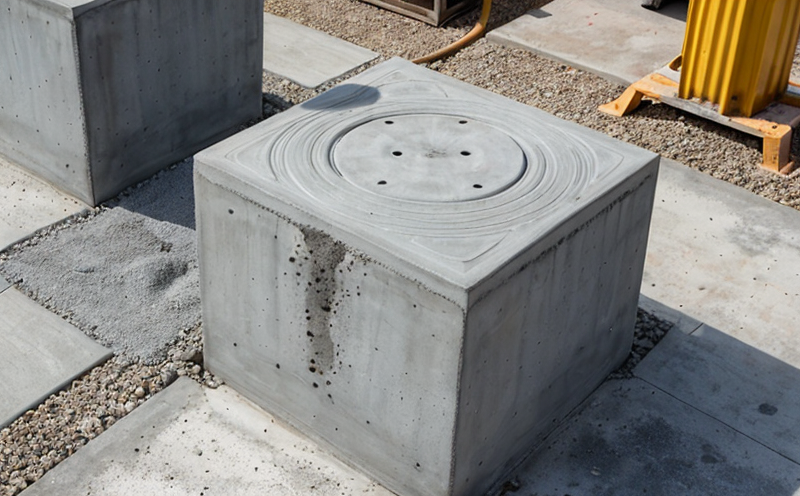ISO 1920 – Aggregate Particle Shape and Texture Testing
The ISO 1920 standard provides a comprehensive framework for testing aggregate particle shape and texture, which is essential in the construction industry. This test ensures that aggregates meet the required standards for durability, strength, and performance of concrete structures.
Aggregate particles play a critical role in determining the quality and performance of concrete. The ISO 1920 standard specifies the methods to classify aggregate particles based on their shape and texture. This classification helps ensure that the aggregates used are suitable for specific applications. For instance, angular particles may be preferred for high-strength concrete, while smoother particles might be more appropriate for road surfaces.
The test process involves several steps: sampling, preparation of specimens, measurement using sieves or other instruments, and interpretation of results. The accuracy and precision of these measurements are crucial to ensure that the aggregates meet the specified requirements.
Understanding particle shape and texture is vital for predicting concrete behavior under various conditions. The shape and texture influence the interlock between particles, which affects the overall strength and durability of the concrete structure. For example, elongated particles may reduce the effective contact area between particles, potentially leading to weaker concrete.
The ISO 1920 standard is widely recognized globally and provides a common language for testing aggregate particles. This ensures consistency in results across different laboratories and jurisdictions, which is particularly important for international projects.
In summary, the ISO 1920 test is essential to ensure that aggregates used in construction meet specific quality criteria. By accurately classifying particle shape and texture, this standard helps maintain high-quality concrete structures, contributing to safety and longevity of infrastructure projects.
Why It Matters
The importance of ISO 1920 testing in aggregate particles cannot be overstated. Proper testing ensures that the aggregates used meet the required standards for durability, strength, and performance. Inadequate testing can lead to substandard concrete, which may result in structural failures or premature deterioration.
By adhering to ISO 1920 guidelines, construction professionals can optimize aggregate use, leading to more efficient and cost-effective projects. This standard helps ensure that the aggregates used are suitable for specific applications, reducing the need for costly rework or remediation.
The test results from ISO 1920 provide valuable insights into particle shape and texture, which are critical factors influencing concrete behavior under various conditions. Understanding these factors allows engineers to make informed decisions about aggregate selection, leading to better-performing structures.
Furthermore, compliance with ISO 1920 ensures that the aggregates used in construction meet international standards, facilitating seamless collaboration on global projects. This consistency is particularly important for multinational companies operating across different regions and jurisdictions.
In conclusion, proper testing of aggregate particles through ISO 1920 contributes to safer, more durable structures while optimizing resources and reducing costs.
Environmental and Sustainability Contributions
- Reduces waste by ensuring that only suitable aggregates are used in construction projects.
- Promotes the use of recycled materials through accurate testing, helping to minimize landfill contributions.
- Contributes to sustainable infrastructure development by ensuring high-quality concrete structures.
Eurolab Advantages
At Eurolab, we offer comprehensive ISO 1920 testing services tailored to meet the needs of our clients. Our expertise in building and infrastructure testing ensures that we provide accurate and reliable results every time.
We have a team of experienced professionals dedicated to ensuring that all tests are conducted according to international standards. This commitment to quality is reflected in our state-of-the-art facilities, which include advanced instrumentation for precise measurements.
Our services extend beyond testing; we also offer consultancy and training programs aimed at helping clients understand the importance of ISO 1920 testing and how it can be integrated into their projects. This holistic approach ensures that our clients are well-informed about best practices in aggregate particle testing.
We pride ourselves on providing timely, accurate results, which is crucial for project timelines. Our reputation for reliability and accuracy has earned us a strong client base across the industry.





